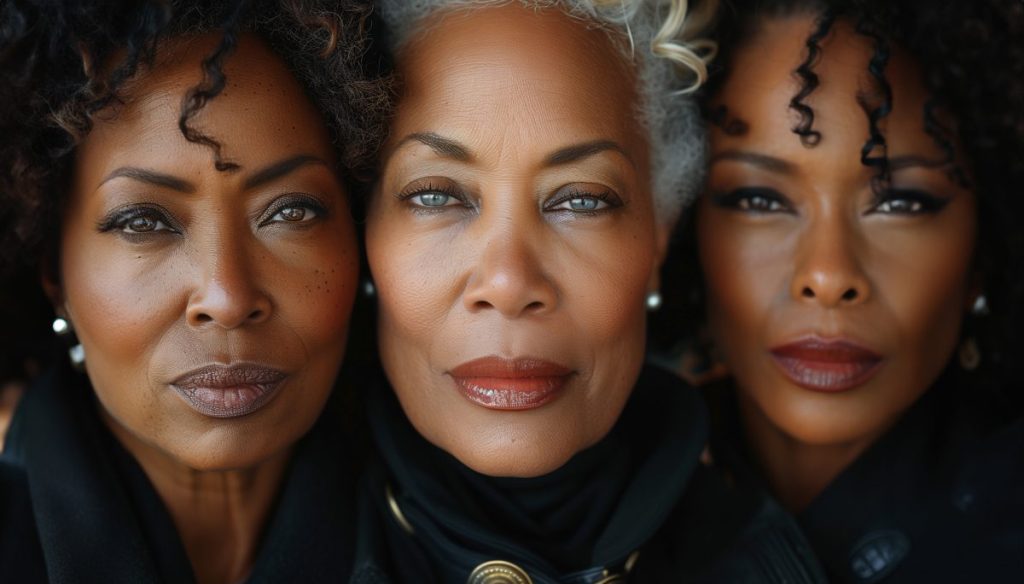By Lori Lee
NDG Contributing Writer
Women of color make up one of the fastest-growing communities of voters in the U.S. today. This rapidly expanding voting block, which includes Latinx, African American and Asian American Pacific Islander (AAPI) women, has the potential to weigh heavily in the November election.
Yet according to Salinda Lake, President of Lake Research Partners, women of color may be lacking enthusiasm about voting this Fall. As a reliable voting block, politicians are not connecting with these voters enough, as reflected in a recent poll by Intersections of Our Lives, a group of researchers focused on civil rights, justice, health and equality issues.
The potential among women of color to make change is enormous, said Lake. This is because the group is large in number and because, according to the poll, they believe in the power of their vote to create change.
African American voters, in particular, tend to be reliable voters, explained Dr. Moss. They see the best way of holding officials accountable is by voting regularly and by voting on their priorities. Black women are some of the most committed and decisive voters, adds Moss, nine of ten stating voting is very important to them, according to this research. They realize their ancestors died for the right to vote, and they do not take it lightly, and this is especially true for older Black women, who remember the struggle for civil rights, she said.

Twenty years ago, people of color were more optimistic, and now, a persistent pessimism has been expressing itself as apathy amongst voters that have been trying to make change, said Nedungadi.
Though a large majority is only somewhat motivated to vote this Fall, the poll indicates that 53% of API women, 57% of Black women and 60% of Latina and Latinx women are still very motivated to vote this Fall.
Though division and partisanship are strong, voter motivation is weak right now, and it appears voters may not turn out until they see enough change that impacts their lives, said Lake. The power of women of color lies in their faith in each vote to make a difference. This is why having conversations with the public is important, so voters can hear their concerns being heard.
A top priority for those polled is rising costs, said Roshni Nedungadi, chief research officer for HIT Strategies, a firm involved in the study. After exploring their responses, researchers found that voters are not only considering the cost of groceries, but other, less obvious costs, like affordable health and reproductive care and fair housing. Affordable housing, which strongly impacts the cost of living, is a critical concern for 90% of Black women, 82% of AAPI, and 83% of Latino women polled who recognized a need for more affordable home options.
Job creation is another economic priority across the board, Nedungadi reported, with 92% of Black, 89% of API women, and 88% of Latinx women prioritizing well-paying jobs. The women polled were also concerned with closing the pay gap between men and women, according to the poll, said San Yan Chamorrow, Executive Director of National Asian Pacific American Women’s Forum.
Other concerns include environmental justice issues like access to clean drinking water and healthy air for those living in high-density areas, reported Lupe Rodriguez, executive director of National Latina Institute for Reproductive Justice.
A top issue was found to include access to affordable abortion care, according to AAPI, Black and Latinx respondents polled. Racial and reproductive justice are crucial to these voters, explained Dr. Regina Davis Moss, President and CEO of In Our Own Voice: National Black Women’s Reproductive Justice Agenda. Concerned that fewer resources may be available to such groups, Moss suggests lower standards for healthcare, housing, employment and education may result in fewer opportunities and substandard care for people in this category.
High maternal mortality rates are particularly important to Black women, said Moss, and abortion bans are already negatively impacting these death rates.
Women of color are very, very strongly engaged with the reproductive justice agenda, adds Rodriguez. In states that have put abortion on the ballot, women of color are rejecting abortion bans and attacks on freedom across the country, including Latinx voters.
Women of color are especially concerned with body autonomy and strongly tie their concerns about rising costs to access to reproductive health care, said Chamorrow. In fact, women’s rights and abortion combined to tie with rising costs as the number one concern for women of color. Latinos are also connecting concerns about rising costs to reproductive health care affordability, added Rodriguez.
For Korean American women, the top issue was women’s rights, which includes abortion and gender-based issues such as wage discrimination. Korean women were also concerned with issues that threaten democracy.
Abortion access has risen for all women of color as a very top priority. This includes Indian American women, who noted priorities for ensuring medication abortion and affordable health care. Three quarters of Indian and Chinese women polled support abortion access, as similar numbers of Vietnamese and Korean populations feel the same. For Vietnamese women, affordable prescription drugs ranked among their top two concerns, and notably, voting issues.
Intersections of our Lives is made up of three organizations and is driven by the intersectional experiences of women of color to make voicing the priorities of women of color a priority in their research.
The group made up of Lake Research Partners and HIT Strategy, released new national polling data that reveals the connections between women of color voters and their priorities. Their poll found connections among Asian-american and Pacific Islander, Black in Latina, Latinx women. These researchers spoke with 850 Latina women registered voters, 850 Asian American Pacific Islander registered voters and 850 African American in Texas, Georgia, Florida and Virginia. The mixed mode poll included online, text and telephone responses.




